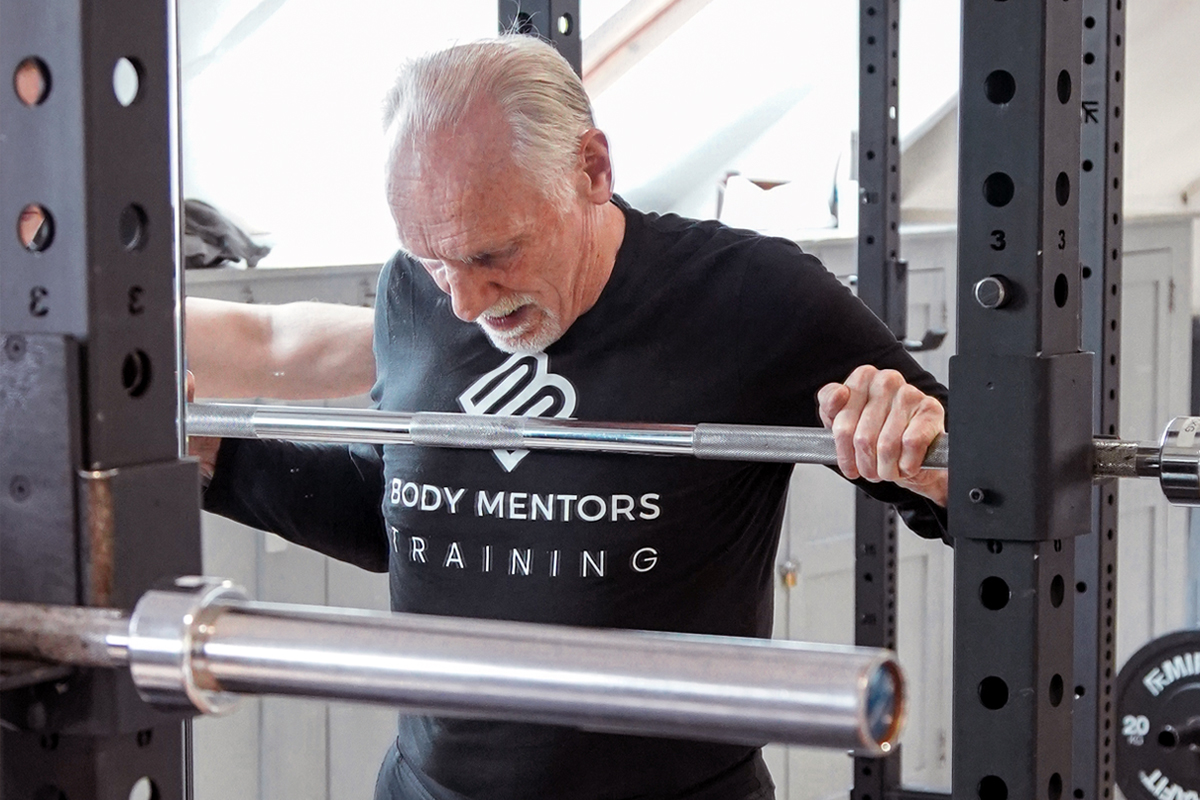
The good news is that strength training can help to combat and even reverse this decline. Historically strength training has been seen, and marketed as, something exclusive to younger generations, and young men in particular. Thankfully things are beginning to change, and strength training is becoming more widely adopted as an incredibly effective tool for older adults to maintain their independence and quality of life in later years.
We’ve seen it first hand with some of our more experienced clientele at Body Mentors, how strength training supported David with a hip replacement at 79, and Brent’s record-breaking powerlifting debut at 71 years-old. The impact that strength training can have for older clients can be truly transformative.
Why does strength matter so much as we age?
Muscle mass decreases approximately 3–8% per decade after 30 and the rate of decline increases after the age of 60. Losing muscle mass directly affects our mobility and balance, increasing the risk of falls, and the subsequent recovery.
Often it will feel as if a particular incident, such as a fall, is the cause of a decline in overall health in older adults. But more often than not, it’s a decline of muscle mass and mobility, gradually over years and years, that has lead to a particular incident, rather than the other way around.
Maintaining muscle mass and mobility allows us to perform the every day tasks (that we take for granted) with ease. Strength training that focuses on compound exercises such as deadlifts, presses and squats are the most effective way to build and maintain your muscle mass. Performed correctly these movements recruit the largest muscle groups, improve bone density and enhance coordination — making them essential for older adults.
Stronger muscles help to protect joints, improve balance and increase your metabolic rate, which helps you to maintain a healthier physique.
What’s the biggest misconception when it comes to strength training as an older adult?
One of the biggest barriers facing older adults when it comes to strength training is fear. It’s widely believed that lifting weights is dangerous and something that’s only suitable for younger people. In reality, this could not be further from the truth. When performed correctly and under the supervision of an expert, strength training is not only safe, but vital for improving your health and wellbeing in later years. With proper technique and gradual progression it can really transform your health, independence, and longevity.
If you’re new to strength training, start by finding a coach who can provide a well
structured program that focuses on the fundamental barbell lifts (such as squats,
presses and deadlifts). It really is never too late to start!
“I feel that my mobility is as good as it has been within a decade or two. Make strength training one of your life’s devotions – you deserve to experience the rewards – and do it with Body Mentors.”
David Wallis, 80, Body Mentors client.

